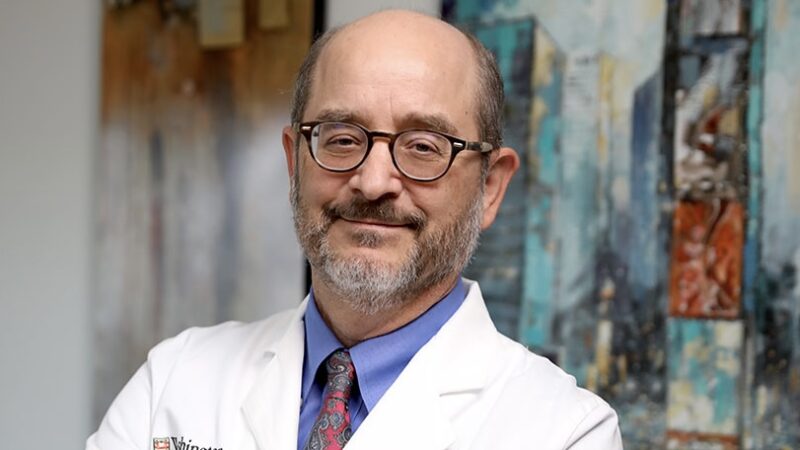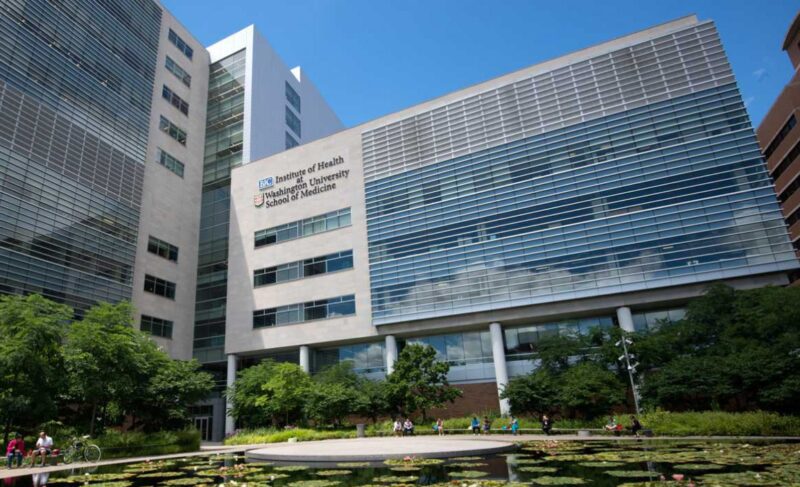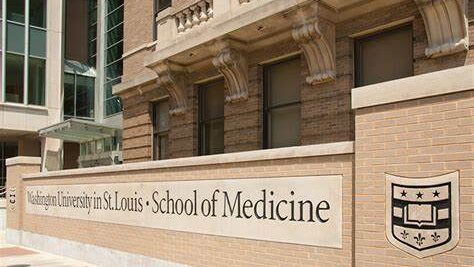Washington University School of Medicine in St. Louis continues to solidify its leadership in leukemia research with the receipt of a five-year, $10.8 million grant to advance its groundbreaking work in leukemia and other blood cancers.
This significant funding comes from the National Cancer Institute (NCI) of the National Institutes of Health (NIH) and renews support for the university’s Specialized Program of Research Excellence (SPORE) in leukemia. The NCI’s SPORE program is dedicated to fostering translational research, helping to bridge the gap between laboratory discoveries and clinical application. Washington University’s leukemia SPORE is one of only two such programs in the United States, underscoring the institution’s prominent role in advancing treatments for leukemia. This grant will allow WashU Medicine to continue its vital research into more effective therapies for leukemia and related blood cancers.
Siteman Cancer Center, affiliated with Barnes-Jewish Hospital and WashU Medicine, is one of a select group of comprehensive cancer centers in the country that holds at least three SPORE grants. In addition to its leukemia SPORE, the institution also has SPORE programs dedicated to endometrial and pancreatic cancers, highlighting its broad and impactful commitment to cancer research and treatment.
The Grant is Led by principal investigator, Daniel Link, the Alan A. and Edith L. Wolff Endowed Professor of Medicine, director of the Division of Oncology in the Department of Medicine, and Siteman’s deputy director, who added:

“Having an NIH-funded SPORE in leukemia — as well as in two additional cancer types — puts WashU Medicine in an elite category of cancer centers across the country. Siteman is a real jewel in our community — a great resource for our patients to get cutting-edge cancer therapy from world experts in the field. Our No. 1 mission is to provide state-of-the-art compassionate care. The studies funded by the SPORE are among the most innovative in the field of blood cancer, and they’re available right here in St. Louis.”
Over the next five years, Siteman Cancer Center’s leukemia SPORE will provide funding for four major researches:
Project 1, led by John DiPersio, Armin Ghobadi, and Michael Rettig, focuses on developing a new cell-based immunotherapy for T-cell acute lymphoblastic leukemia (T-ALL). The researchers are engineering “off-the-shelf” allogeneic CAR-T cells derived from healthy donors. These CAR-T cells are specifically designed to recognize and kill T-ALL cells while avoiding damage to normal tissue.
Early results from a first-in-human clinical trial of these engineered CAR-T cells in patients with relapsed T-ALL have shown encouraging outcomes. The study demonstrates the potential of this novel therapy to provide a more effective and less harmful treatment option for T-ALL patients, especially those who have not responded to traditional treatments.
Project 2, led by Todd Fehniger and Amanda Cashen, focuses on developing a new cellular immunotherapy using natural killer (NK) cells. These “memory-like” NK cells, discovered at WashU Medicine, will be tested as a treatment for patients who have relapsed after bone marrow transplantation. The team is also working on engineering NK cells to improve their ability to recognize and eliminate acute myeloid leukemia (AML) and other cancers.
This innovative approach has the potential to enhance the effectiveness of NK cell therapies in treating relapsed cancers, offering a promising alternative to conventional treatments. The research aims to leverage the immune system’s natural ability to target and destroy cancer cells, with the goal of improving outcomes for patients with difficult-to-treat leukemia and other malignancies.
Project 3, led by Matthew Walter and Tim Graubert, focuses on myelodysplastic syndrome (MDS) and acute myeloid leukemia (AML). The researchers are investigating whether blocking two proteins involved in DNA repair—ATR and PARP1—can be a safe and effective treatment for these blood cancers. Additionally, they will explore the reasons behind resistance to ATR inhibition in some patients and work on developing combination therapies to overcome this resistance.
By targeting the DNA repair mechanisms that cancer cells rely on, this project aims to improve treatment outcomes for patients with MDS and AML. The findings could lead to more effective therapies for these challenging blood cancers, offering new hope for patients with limited treatment options.
The fourth project, led by Link and Geoffrey L. Uy, focuses on patients with AML or MDS who have mutations in the TP53 gene, the most commonly mutated gene in all cancer types. Link’s team has shown that blood cancers with mutated TP53 are particularly vulnerable to a combination of decitabine and drugs that inhibit the ATR pathway, which plays a key role in how cells respond to DNA damage.
This project will support a first-in-human clinical trial to test the effectiveness of this drug combination in patients with AML or MDS harboring TP53 mutations. The goal is to develop a targeted treatment approach for these challenging blood cancers, potentially improving outcomes for patients with limited options.
About Washington University School of Medicine (WashU Medicine)

Washington University School of Medicine (WashU Medicine) is renowned globally for its leadership in academic medicine, which spans biomedical research, patient care, and educational programs. With a faculty of 2,900, it ranks second in NIH research funding among U.S. medical schools and has seen a 56% increase in funding over the past seven years. The institution invests over $1 billion annually in research and training, with its faculty practice consistently ranking in the top five in the country. Over 1,900 faculty physicians practice at more than 130 locations, serving as the medical staff for Barnes-Jewish and St. Louis Children’s hospitals of BJC HealthCare.
WashU Medicine has a long-standing reputation for excellence in MD/PhD training and has recently committed $100 million to support scholarships and curriculum innovation for medical students. The school also offers world-class training programs across all medical subspecialties, along with specialized programs in physical therapy, occupational therapy, and audiology and communications sciences, ensuring the highest standards of education and patient care.


